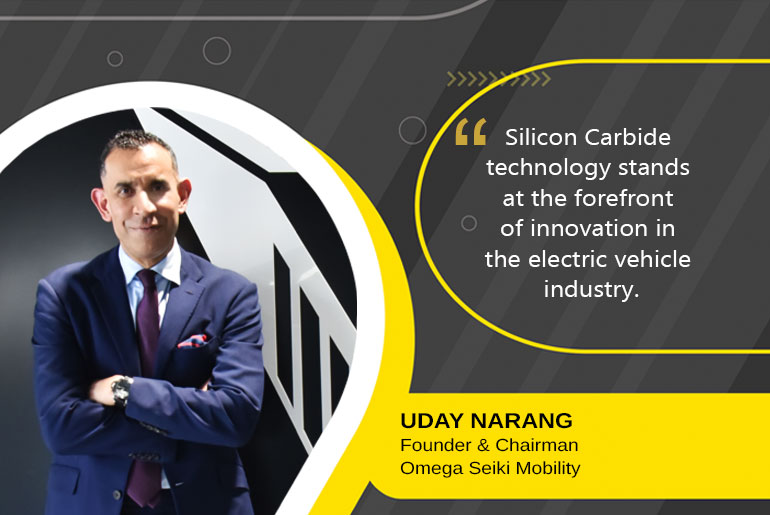In the rapidly evolving landscape of electric vehicles (EVs), technological advancements play a pivotal role in shaping the future of sustainable transportation. Among the breakthroughs, Silicon Carbide (SiC) has emerged as a game-changer, revolutionizing the efficiency, performance, and overall dynamics of electric vehicles. This article delves into the profound impact of SiC technology in the realm of EVs and explores its multifaceted advantages.
SiC, a compound of silicon and carbon, has long been recognized for its extraordinary properties. However, it is in the context of electric vehicles that SiC truly shines. Unlike traditional silicon-based semiconductors, SiC boasts 3x higher thermal conductivity, 10x higher electron mobility, and the ability to operate at 200°C higher temperatures. These characteristics translate into increased power density by 50%, reduced energy losses by 75%, and improved overall efficiency in EV systems by up to 10%.
One of the critical challenges faced by electric vehicles is managing heat generated during power conversion processes. SiC’s exceptional thermal conductivity, 3x higher than silicon, not only facilitates efficient heat dissipation but also allows for the design of more compact and lightweight power electronic systems. This translates to a weight reduction of up to 20% in the inverter, a key component in the EV drivetrain. This not only improves the overall efficiency of the EV but also extends the lifespan of key components, contributing to a more sustainable and reliable transportation solution.
SiC’s superior electron mobility enables faster switching speeds in power electronic devices, leading to reduced switching losses. This attribute is particularly advantageous in high-power applications, such as fast-charging stations. The implementation of SiC technology in EV charging infrastructure has the potential to significantly decrease charging times by up to 50%, providing a more convenient and practical experience for electric vehicle users. Moreover, the improved efficiency of the on-board charger contributes to an extended driving range by up to 10%, addressing a common concern among EV enthusiasts.
The integration of SiC technology in electric vehicle powertrains results in a more efficient conversion of electrical energy. The reduced energy losses during power transmission and conversion lead to higher overall system efficiency by up to 10%. This, in turn, translates into improved acceleration, better energy utilization, and an enhanced driving experience for EV users. SiC’s ability to operate at higher temperatures without compromising performance further reinforces its role in optimizing the overall efficiency of electric vehicles.
As the automotive industry undergoes a paradigm shift towards sustainability, the environmental impact of electric vehicles becomes a focal point. SiC technology not only contributes to the efficiency and performance of EVs but also aligns with the broader goal of reducing carbon footprints. The enhanced energy efficiency leads to decreased energy consumption by up to 10%, making electric vehicles powered by SiC technology a greener alternative to traditional internal combustion engine vehicles, which can contribute to a reduction in greenhouse gas emissions by up to 30%.
In conclusion, Silicon Carbide technology stands at the forefront of innovation in the electric vehicle industry. Its unique properties, including high thermal conductivity, superior electron mobility, and the ability to operate at elevated temperatures, make it a strategic choice for enhancing the efficiency, performance, and sustainability of electric vehicles. As the automotive landscape continues to evolve, SiC technology is poised to play a pivotal role in shaping the future of electric mobility, ushering in an era of cleaner, more efficient, and technologically advanced transportation solutions.

